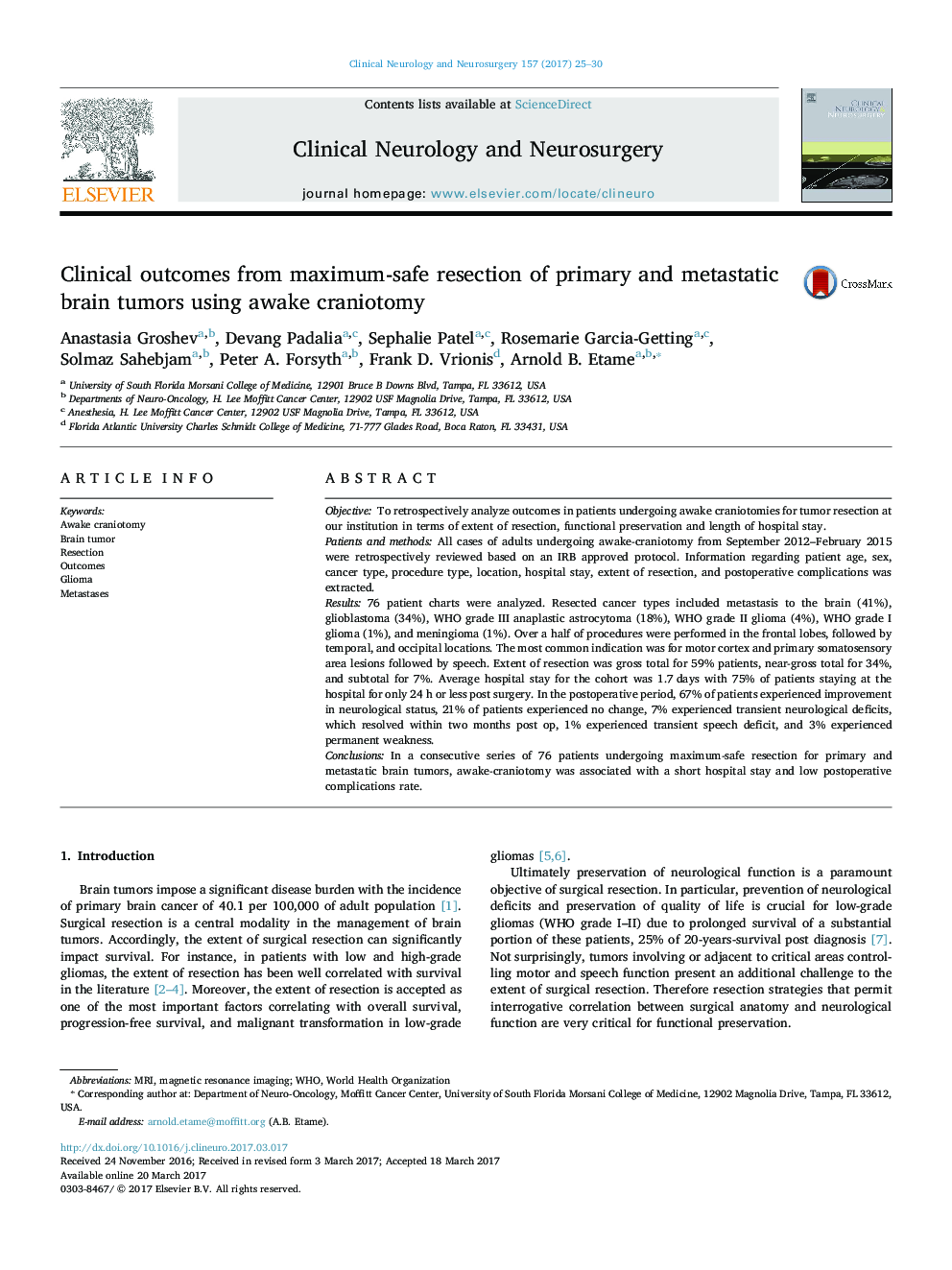| کد مقاله | کد نشریه | سال انتشار | مقاله انگلیسی | نسخه تمام متن |
|---|---|---|---|---|
| 5627134 | 1579665 | 2017 | 6 صفحه PDF | دانلود رایگان |

- Awake-craniotomies are associated with decreased surgical morbidity for eloquent and non-eloquent area lesions.
- Awake-resections were associated with shorter hospital stay in our cohort.
- Awake-resections facilitate a smooth transition to adjunctive therapies in our cancer patient cohort.
ObjectiveTo retrospectively analyze outcomes in patients undergoing awake craniotomies for tumor resection at our institution in terms of extent of resection, functional preservation and length of hospital stay.Patients and methodsAll cases of adults undergoing awake-craniotomy from September 2012-February 2015 were retrospectively reviewed based on an IRB approved protocol. Information regarding patient age, sex, cancer type, procedure type, location, hospital stay, extent of resection, and postoperative complications was extracted.Results76 patient charts were analyzed. Resected cancer types included metastasis to the brain (41%), glioblastoma (34%), WHO grade III anaplastic astrocytoma (18%), WHO grade II glioma (4%), WHO grade I glioma (1%), and meningioma (1%). Over a half of procedures were performed in the frontal lobes, followed by temporal, and occipital locations. The most common indication was for motor cortex and primary somatosensory area lesions followed by speech. Extent of resection was gross total for 59% patients, near-gross total for 34%, and subtotal for 7%. Average hospital stay for the cohort was 1.7Â days with 75% of patients staying at the hospital for only 24Â h or less post surgery. In the postoperative period, 67% of patients experienced improvement in neurological status, 21% of patients experienced no change, 7% experienced transient neurological deficits, which resolved within two months post op, 1% experienced transient speech deficit, and 3% experienced permanent weakness.ConclusionsIn a consecutive series of 76 patients undergoing maximum-safe resection for primary and metastatic brain tumors, awake-craniotomy was associated with a short hospital stay and low postoperative complications rate.
Journal: Clinical Neurology and Neurosurgery - Volume 157, June 2017, Pages 25-30